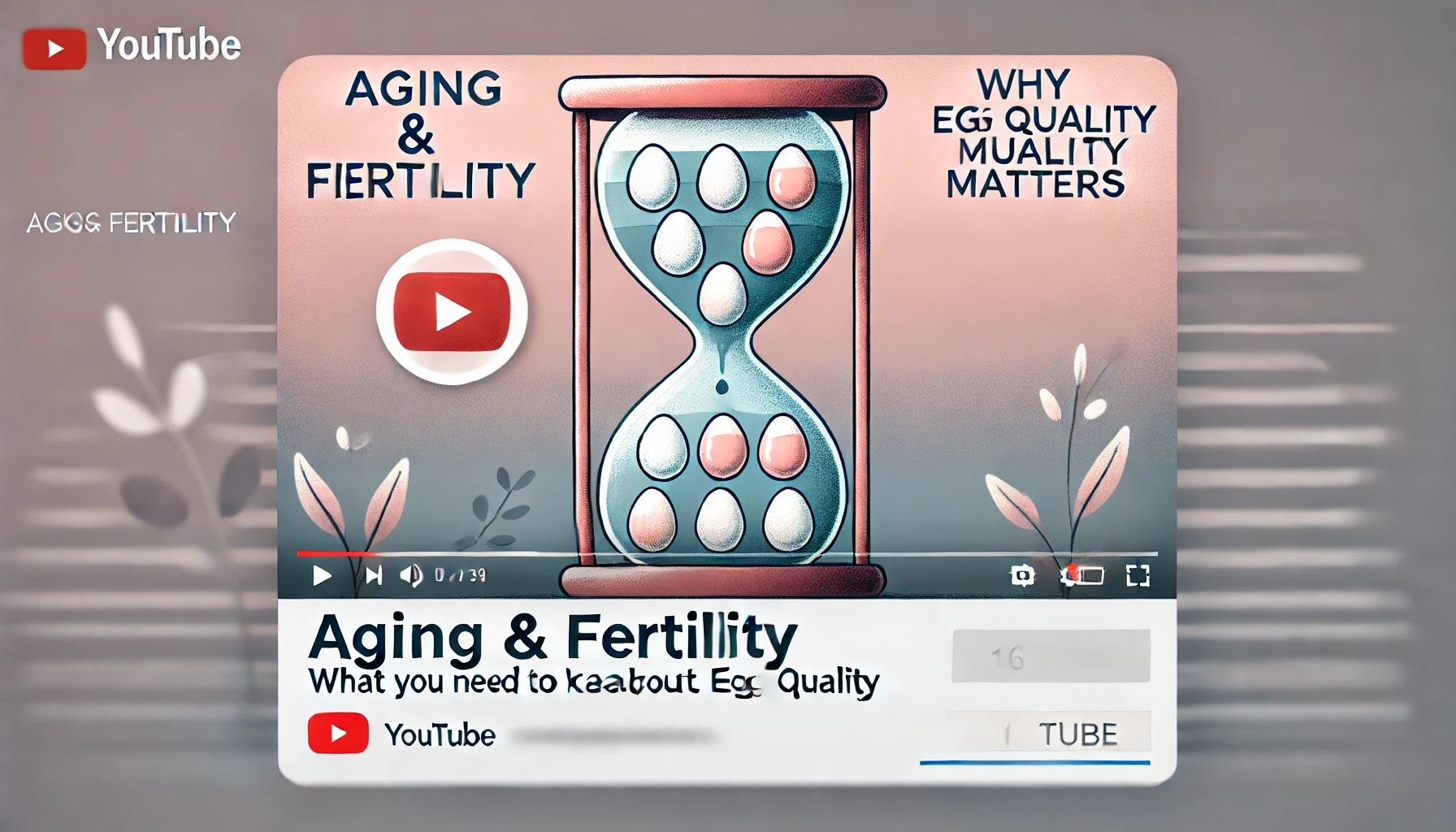Hi friends! I’m Dr. Natalie Crawford, a board-certified OBGYN and reproductive endocrinology and infertility (REI) specialist. Today, let’s talk about a topic that impacts many people but is often overlooked: age-related infertility. As we get older, our bodies and reproductive systems change in ways that can affect our ability to conceive. In this article, I’ll break down how age influences fertility, the myths around “running out of eggs,” and what you can do to improve your fertility health.
Understanding the Basics of Egg Supply and Fertility
From birth, every woman has a finite number of eggs stored in her ovaries. Think of it like a vault filled with eggs: over time, these eggs are gradually released, and as the vault empties, fertility potential changes. However, age-related infertility isn’t just about the number of eggs left; it’s more complex than that. Understanding these basics helps to clarify the role of egg quality and why age matters in fertility.
What Really Affects Fertility as We Age?
Many people believe that declining fertility is solely due to a decrease in egg quantity, but the quality of those eggs is even more crucial. The longer eggs remain stored, the more they are exposed to life’s wear and tear. This “aging” of eggs can impact genetic health, making it harder for them to function properly during conception.
Egg Quality and Genetic Health: The Real Issue
As we age, eggs are more likely to have chromosomal abnormalities, which can increase the risk of miscarriage and reduce the likelihood of successful pregnancy. These changes are a natural part of the aging process, similar to how our skin develops wrinkles or joints become sore. Younger eggs generally have more genetic stability and better function, which is why fertility rates are often higher in younger people.
Key Fertility Milestones and Age-Related Success Rates
Here’s a look at how age affects your chances of conceiving naturally each month:
- Ages 20-30: 20-25% chance of conceiving per cycle
- Ages 30-35: 15-20% chance per cycle
- Age 35-38: 8-12% chance per cycle
- Age 40+: 5% chance or lower per cycle
These percentages highlight that as you get older, your likelihood of conceiving decreases—not because you’re “out of eggs,” but because the eggs available are more likely to have chromosomal issues.
How Ovarian Reserve Impacts Fertility
Ovarian reserve measures the number of eggs you have left. It can be evaluated through tests like AMH (Anti-Müllerian Hormone) levels or ultrasound. While a lower AMH indicates fewer eggs, it doesn’t mean you can’t get pregnant. Rather, it signals that you may approach menopause sooner. Importantly, having a high AMH does not negate the impact of age on egg quality, so delaying conception based solely on AMH can be misleading.
Also Read: Should You Travel for IVF or Egg Freezing?
Practical Steps to Improve Fertility Health
While you can’t stop the natural aging process, you can take steps to maintain better overall reproductive health. Here are some practical ways to support your fertility:
- Limit Toxins: Avoid exposure to environmental toxins (cigarettes, alcohol, marijuana) that can negatively impact egg quality.
- Optimize Diet: Focus on whole foods and limit processed sugars and trans fats.
- Reduce Stress and Inflammation: Engage in stress-relieving activities and avoid inflammatory foods.
- Get Regular Sleep: Sleep plays a critical role in allowing your body to repair and maintain its cellular health.
When to Consider Fertility Treatments or Egg Freezing
If you are over 35 and considering delaying pregnancy, it may be worthwhile to explore egg freezing or fertility treatment options. These can help extend your reproductive lifespan by preserving younger, healthier eggs for the future.
Conclusion
Age-related infertility is not solely about the number of eggs left but also about their quality. As we age, our eggs are more likely to have genetic abnormalities that can hinder conception. However, making conscious lifestyle choices, reducing inflammation, and considering fertility preservation can all support better reproductive health as you age.
For those considering their fertility options, start the conversation early, and don’t hesitate to seek help. Knowing your options and understanding your body can empower you on your fertility journey.
Subscribe for more insights on fertility, and follow me on Instagram or listen to my podcast for more information.
Thank you for reading, and feel free to share this with friends who may find it helpful!
